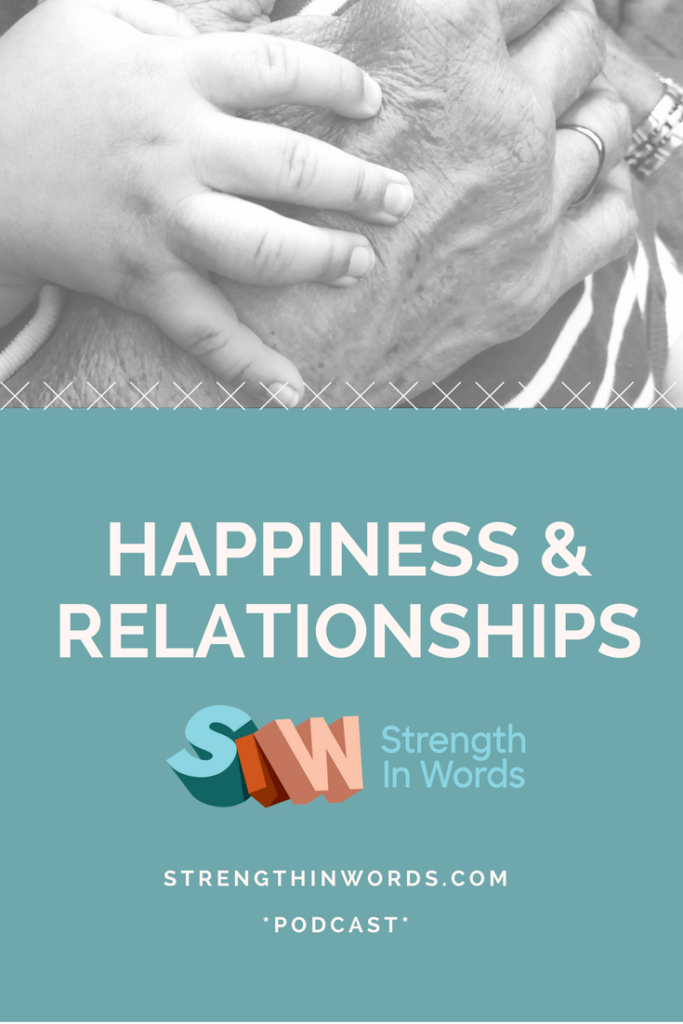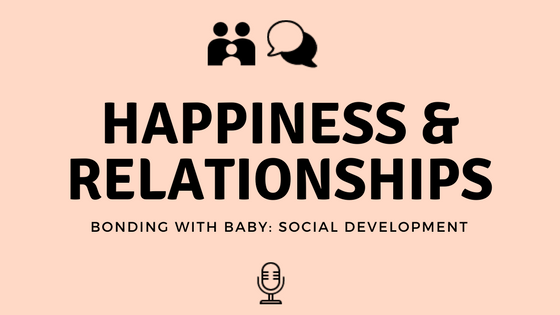We are happier when we enjoy meaningful relationships: it’s scientifically proven

On this episode of Learn With Less, Ayelet explores the idea that the first years of life are dedicated to the development of a secure bond with one or more caregivers, followed by the confidence of exploration.
Social/emotional development is becoming more and more recognized as a vital component of early learning and development.
Below is the transcript of this week’s “Developmental Thought,” an excerpt from the full episode.
For additional information, music, play ideas and the complete interactive family experience, please listen to the entire episode.
Social/emotional development is a very real part of healthy, robust learning and early development, and (as I discussed in my episode, Holistic Learning), an infant or toddler’s learning experience in this domain often cannot be separated from other areas of development.
>>Don’t Miss Our Corresponding Blog Post<<
In other words, when our little ones are focused on some cognitive skill, this learning is also, inevitably, tied to aspects of his social/emotional development as well.
During much of the first years of life, an infant and toddler’s sense of identity is very much tied up with his ability to sense he is secure. In turn, he develops the confidence to explore the world not only in a physical sense, but also mentally and emotionally.
The Science of Happiness
In a study that famously set out to predict the most influential factors in a person’s overall happiness, the lead investigator was quoted as having learned that “the only thing that really matters in life are your relationships to other people.” (Dr. George Vaillant, 2008)
In study after study, developmental research indicates that the single most important factor in a young child’s life (as a predictor of overall success, academic ability, ability to regulate one’s emotions and form and maintain healthy relationships) is a warm and positive relationship with a caregiver.
We all do our best as parents. We can’t be there all the time. And the parent whose life appears to be the one you crave is struggling to do the best for their children as well. All we can do is the best we can, and create as many moments with our little ones to make it perfectly clear to them that they are valued, respected, loved and cherished.
Enriching Experiences
I know we’re talking a lot in this episode about spending time in groups and with other adults and children… I’m NOT trying to suggest that the only way to do this is to sign your children up for loads of classes, and spend tons of money going to play spaces built for kids… for many of us, this is often impractical, financially as well as time-wise.
Please consider all the many resources that are free or low cost, for getting out of the house and exploring the community with your child. In almost every community, your local library offers a free story or rhyme time group, focusing on early literacy experiences and nursery rhymes. The local playground or park (or walk down the sidewalk or trail) is a wonderful place to explore and find subtle yet fascinating surprises – a spider web, a piece of bark, or “found” letters of the alphabet…
Facebook and other social media groups can be very useful tools for meeting other local families in many communities around the world. The reality for many families is that we crave quality time with our own children and partners… and it can be difficult to even carve out time for that… but don’t forget how valuable it is to simply have a moment to sit and observe other caregivers interacting with their children, and simply observe our little ones’ same aged-peers.
Attachment to Others
Remember that the most important factor in your little one’s early development, as we discussed earlier, is that warm, positive relationship with a caregiver. Whether your child is at home with you or with another caregiver, or at a day care facility with other caregivers and peers, we’re talking about relationships – a caregiver who models positive face-to-face interactions, who is responsive, who is present and creates a safe environment for exploration… all this, so that a young child can learn to trust the world around him, feel secure in his attachment to another human being (or several!), and confidently learn to explore the world around him, which is, of course, the way he learns!
This applies to all of us – regardless of developmental age or ability. I know that those of you who have children with developmental disabilities or special needs face your own unique challenges when it comes to helping your little one with social/emotional development – but these words absolutely apply to all families. Sometimes we need to make adaptations or modifications to our physical environment, learning materials, or our own approach as parents… but every child – EVERY child has the right to form relationships and enjoy happiness.
Social and Emotional Development
The California Department of Education has a wonderful resource on their website, which outlines the foundations of infant and toddler “Social-Emotional Development.”
They define the foundational areas of social/emotional development by the following areas:
- Interaction with Adults
- Relationships with Adults
- Interaction with Peers
- Relationships with Peers
- Identity of Self in Relation to Others
- Recognition of Ability
- Expression of Emotion
- Empathy
- Emotion Regulation
- Impulse Control
- Social Understanding
I encourage you to have a look on their site for further research-based definitions and examples of what each of these areas might “look like” for an infant of 8-months, 18-months, and 36-months.
When it comes to social/emotional development, we know that positive modeling, positive self-image and positive relationships are the basis for a child’s ability to form successful relationships, succeed academically and otherwise, and build the tools to work through conflict and discord throughout the lifespan. It is our job as parents and caregivers to provide this for our little ones!

